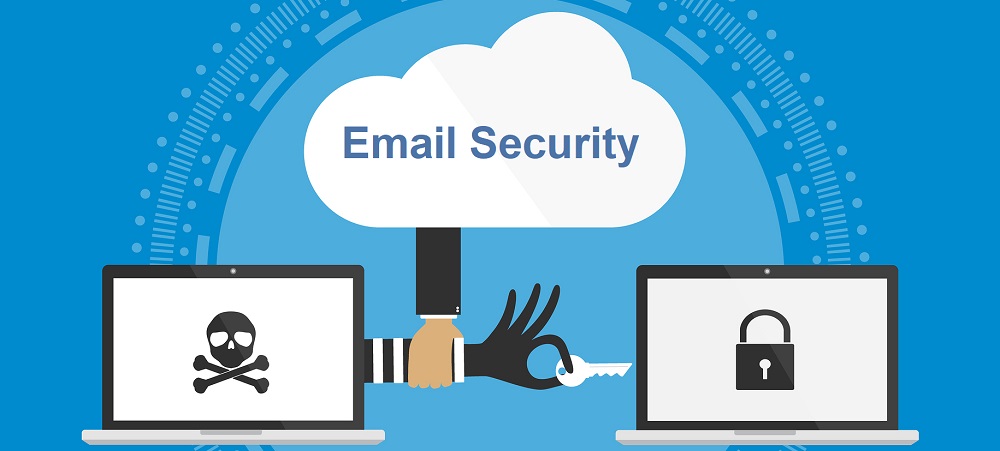In today’s hyper-connected world, small businesses face unique challenges. From marketing to communication, you need to be top-notch to stay ahead of your competitors. And at the heart of all business communication lies email hosting. A well-structured, efficient, and reliable email service is not a luxury; it’s a necessity. In this comprehensive article, we will dive into the world of email hosting services that cater to small businesses. Brace yourself for an intricate journey that unveils the nitty-gritty of email for small business, helping you find the solution that meets your specific needs.
The Importance of Choosing the Right Email Service
Choosing the right email hosting for a small business is akin to choosing the engine for your car. The right engine will give you performance, reliability, and the assurance of a smooth journey ahead. Email hosting services offer features like spam filtering, advanced security, and integrations with other business applications that make your life easier.
Your business needs a reliable communication channel to interact with clients, customers, and your own team. Inconsistent or unreliable email services can hamper your business reputation. Delays in email receipt, or worse, lost emails, could mean lost business opportunities.
Selecting a well-suited email hosting service is a long-term investment. While free email services abound, they often lack the features and security measures essential for businesses. So, the right balance between cost and features is crucial to fuel your business’s growth.
One surprising element people often overlook is the storage provided by the email service. Best business email service options should ideally offer ample storage space to accommodate not just text, but also attachments such as documents, images, and videos that are often exchanged in business communications.
So, let’s get into the nitty-gritty and explore the criteria and services that you should consider when seeking out the best email hosting for small business.
Features to Look For
When considering small business emails, one-size-fits-all doesn’t apply. Every business has unique needs. Therefore, the feature set is crucial when choosing an email hosting service. Look for services that offer advanced security features such as two-factor authentication (2FA) and encryption. Security isn’t something you should compromise on; a breach could cause irreparable damage to your business reputation.
Multi-platform access is also vital. As a busy professional, you’re likely on the go, working from multiple devices like laptops, tablets, and smartphones. A good email hosting service should be accessible and fully functional from all these platforms.
Businesses often require additional features like calendar sharing, task management, and collaboration tools. Thus, consider email solutions for small businesses that provide these as part of the package or at least offer easy integration with existing systems.
Cloud email solutions for small businesses are increasingly popular. They offer the added benefits of scalability and remote access, which are particularly useful for businesses that foresee rapid growth. Cloud-based solutions also offer high availability, ensuring that your email is accessible whenever and wherever you need it.
Some providers also offer built-in archiving features. This ensures that your emails and attachments are securely stored and can be easily retrieved, a critical function for legal compliance and record-keeping.

Pricing Models
Costs can be a significant factor for small businesses. Fortunately, there are many pricing models available, which means you can find a service that fits within your budget. Some providers offer a free tier with basic functionalities, which may be sufficient for solo entrepreneurs or micro-businesses.
However, as your business grows, your needs will evolve. Free services might become inadequate, and hidden costs may start to emerge. It’s always better to opt for a service that offers a clear, transparent pricing model, without any hidden fees. A flat monthly or annual fee that includes all essential features can often prove to be the most cost-effective in the long run.
It’s wise to consider the ROI (Return on Investment) when evaluating the cost of an email hosting service. An excellent email service can improve productivity, facilitate better communication, and, by extension, increase profitability.
Many top 10 business email service providers offer tiered pricing plans, allowing you to upgrade as your needs evolve. This offers an affordable entry point and the flexibility to scale as you grow.
Consider the cost of switching services down the line. If a particular service doesn’t offer easy portability of your existing emails and contacts, it could become a significant hassle and expense to switch providers later.
Security Measures
The importance of security in today’s digital world can’t be overstated. Web and email hosting for small businesses often involves sensitive client data, financial transactions, and confidential internal communication. Providers must offer robust security measures to protect this data.
Advanced features such as SSL/TLS encryption, anti-phishing, and anti-malware tools are no longer optional; they’re mandatory. Many providers also offer secure password protocols and routine security audits to ensure the integrity of your data.
Compliance with regulatory standards, such as GDPR for European businesses, is another crucial factor. Failing to meet these standards could result in hefty fines and irreparable damage to your reputation. Ensure that the provider you choose complies with all relevant regulations.
Business continuity is essential. This means that in the case of server outages or other technical issues, your email should still be accessible. Providers should offer backup and disaster recovery options to ensure that your data is safe and retrievable.
It’s also essential to consider data ownership and privacy policies. Many businesses overlook this aspect, only to find out later that their data is being used in ways they didn’t anticipate. Always read the fine print to understand who owns the data and how it’s used.

Customer Support and Reliability
Reliable customer support can be a lifesaver. When things go wrong—and they will at some point—you want a responsive, knowledgeable team to help you navigate the crisis. Business email platforms should offer 24/7 customer support through multiple channels, such as email, chat, and phone.
Also, assess the average response time of customer support. Time is money, and you can’t afford to wait hours or days for a resolution to your problems. Many businesses have faced severe consequences due to delayed or unresponsive customer support.
Uptime is another critical factor. You can’t afford to have your email service down for extended periods. Most reputable providers offer at least 99.9% uptime, ensuring that your email is accessible when you need it.
Reading reviews and testimonials can give you valuable insights into the reliability and performance of a service. Consider both expert reviews and user-generated reviews for a well-rounded view of what to expect.
While many services advertise fantastic features and low prices, the reliability of these features under real-world conditions is what ultimately matters. So, always consider customer feedback as a valuable resource in your decision-making process.
Adaptability and Scalability
As your business grows, so will your needs. The best small business email hosting should offer adaptability and scalability to meet these evolving requirements. Look for services that offer easy upgrades, both in terms of storage and features.
For businesses that experience seasonal fluctuations, some providers offer the flexibility to scale up or down as needed. This can be a cost-effective solution, allowing you to pay for only what you use.
Customization is another significant factor. Your email service should allow you to personalize your email domain, signatures, and even the interface, to reflect your brand identity. This customization not only fosters brand consistency, but also offers a more professional appearance to your clients and partners.
Email hosting for small businesses should not be a rigid service, but a flexible platform that grows with you. Your chosen service should offer various integration options to connect seamlessly with other business tools you might adopt in the future, like CRM systems, project management software, and marketing platforms.
One of the most exciting trends in email hosting is the integration of AI and machine learning technologies. These can provide intelligent spam filtering, automate responses, and even schedule emails to be sent at optimal times, thus increasing your email efficiency and effectiveness.

Collaboration Tools and Integration
In the modern business landscape, email is often just one part of a larger ecosystem of business tools. That’s why it’s crucial to select an email hosting provider that offers robust collaboration tools or at least integrates well with the ones you’re already using.
Many websites and email hosting for small businesses offer built-in video conferencing tools, shared calendars, and document collaboration. These features make it easier for teams to collaborate and stay productive without leaving the email environment.
File sharing is another aspect to consider. The ability to easily share large files securely can make a significant difference in your day-to-day operations. Many services now offer this feature, including options to control who can access the shared files and for how long.
Integration with other software solutions, like CRMs or marketing automation platforms, can enhance productivity and streamline your workflows. Advanced email services offer APIs and SDKs that allow for custom integrations, opening up endless possibilities for how you manage and utilize your email system.
Cloud-based email solutions for small businesses often offer the best in terms of collaboration and integration. Because the service is hosted in the cloud, it’s easy to integrate with other cloud-based applications, creating a unified, accessible-from-anywhere work environment.
User-Friendly Interface and Experience
While an email service may be packed with features, if it’s not user-friendly, you’ll find that your team may not use it to its full potential. A clean, intuitive interface is crucial for user adoption and overall productivity.
Ease of use also extends to the setup process. Small businesses often don’t have the luxury of a dedicated IT team, so an email service that’s easy to set up and manage is invaluable. Look for services that offer easy migration tools to transfer your existing emails, contacts, and calendar events.
An often-overlooked element is mobile accessibility. The best small business email hosting should offer a responsive mobile application or interface. With the rise of remote work, being able to manage your email efficiently from a mobile device is more important than ever.
Training and tutorials can go a long way in helping your team get the most out of the email service. Look for providers that offer comprehensive guides, FAQs, and even webinars to help you navigate the intricacies of their service.
User experience isn’t just about the interface; it’s about the overall interaction with the service. This includes everything from customer service to the frequency and intrusiveness of ads in low-cost or free tiers.

Compliance and Archiving
When it comes to business email, you can’t afford to overlook compliance with industry standards and regulations. This is particularly important for businesses that deal with sensitive information, such as healthcare providers or financial institutions.
Email archiving is not just useful for record-keeping; in many industries, it’s a legal requirement. Services should offer robust archiving features that allow for easy retrieval of old emails and attachments. This can be critical during legal disputes or audits.
Make sure your chosen service complies with international and jurisdictional data protection and privacy laws, such as GDPR in Europe or HIPAA in the United States. Non-compliance can result in hefty fines and severely damage your business reputation.
If your business falls under specific regulatory scopes, look for specialized business email platforms that cater to these needs. Some services offer compliance guarantees and even provide legal indemnification in case of violations, offering an extra layer of protection.
Always read the service level agreement (SLA) carefully to understand your responsibilities as well as those of your service provider. This document will outline the terms of service, including compliance features, and should be thoroughly reviewed.
Environmentally Friendly Options
In an age where sustainability is more important than ever, some email hosting providers are making efforts to minimize their environmental impact. While not a primary consideration for most businesses, choosing an eco-friendly service can be a selling point for your brand.
Look for providers that run their data centers on renewable energy or have established carbon offset programs. The digital world has a surprisingly large carbon footprint, and every little bit helps in mitigating environmental damage.
Beyond just energy sources, consider the provider’s overall sustainability efforts. Some companies are committed to ethical business practices, including social responsibility programs that benefit communities and the environment.
Choosing a green email hosting service not only benefits the planet, but can also resonate with your clients and customers who prioritize sustainability.
Conclusion
The world of email hosting is vast and ever-changing. What matters most is finding a service that aligns with your unique business needs. By delving deep into the features, security, pricing models, and additional functionalities, you can make an informed decision that pays off in both the short and long term.
Whether you’re looking for top 10 business email service providers or specialized solutions, the right choice can significantly impact your business operations. From fostering efficient communication to ensuring data security, the benefits are manifold. So take your time, assess your options carefully, and choose wisely. Your business deserves nothing less.


